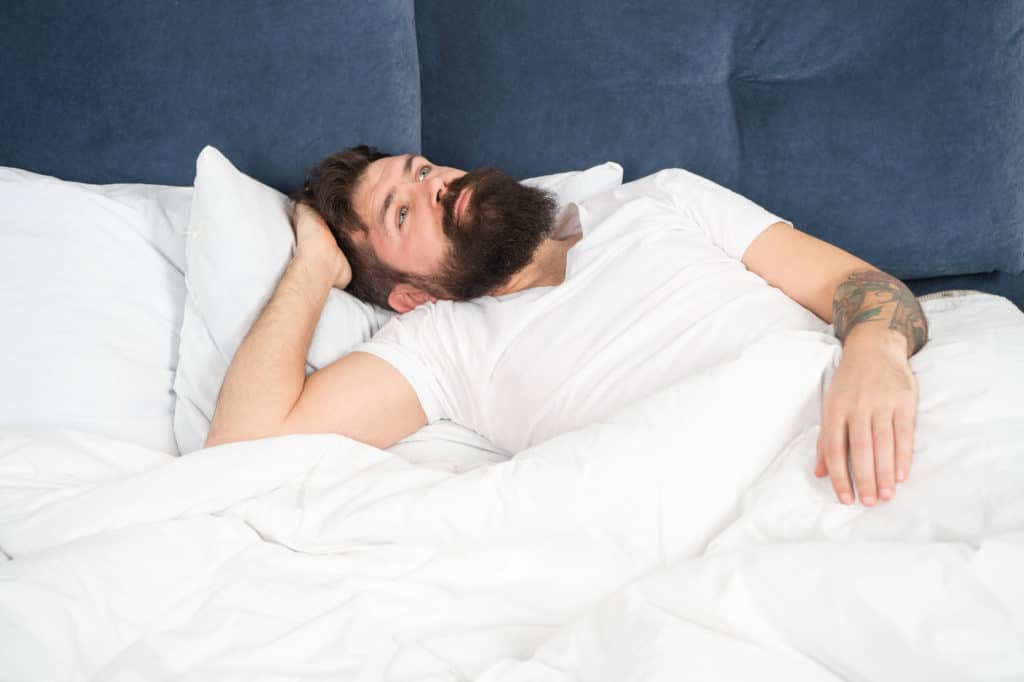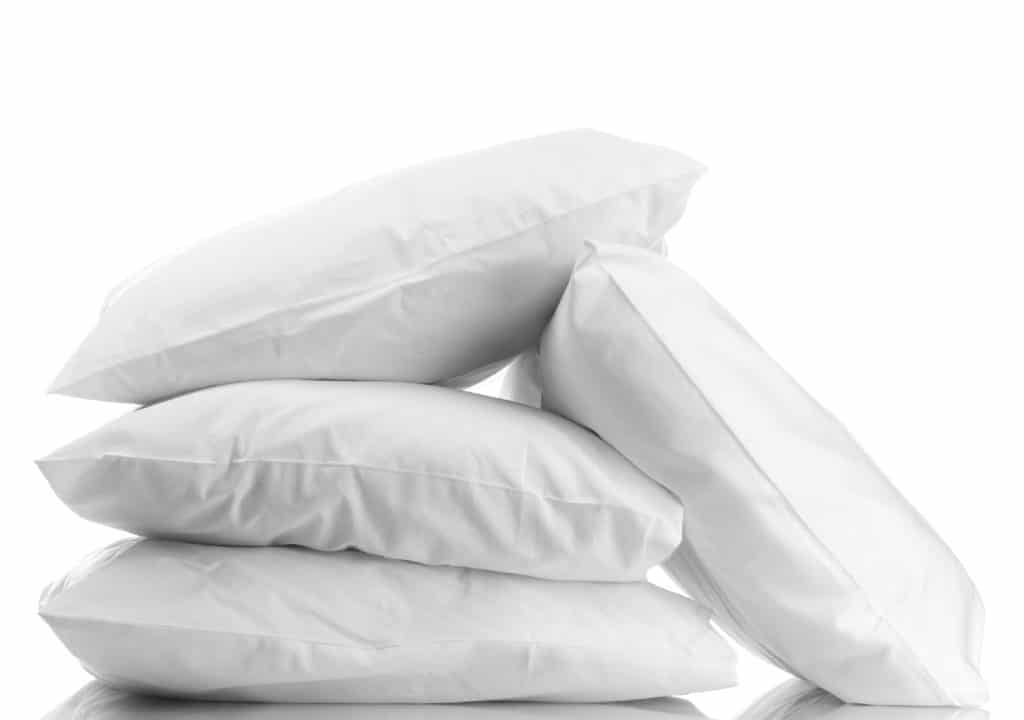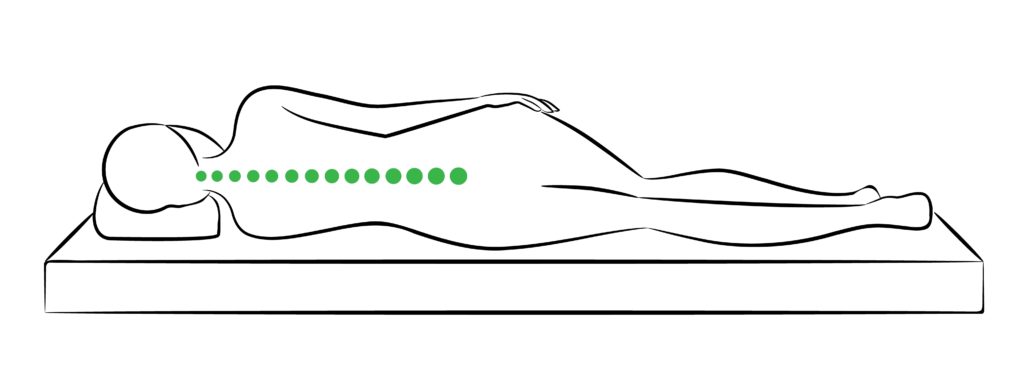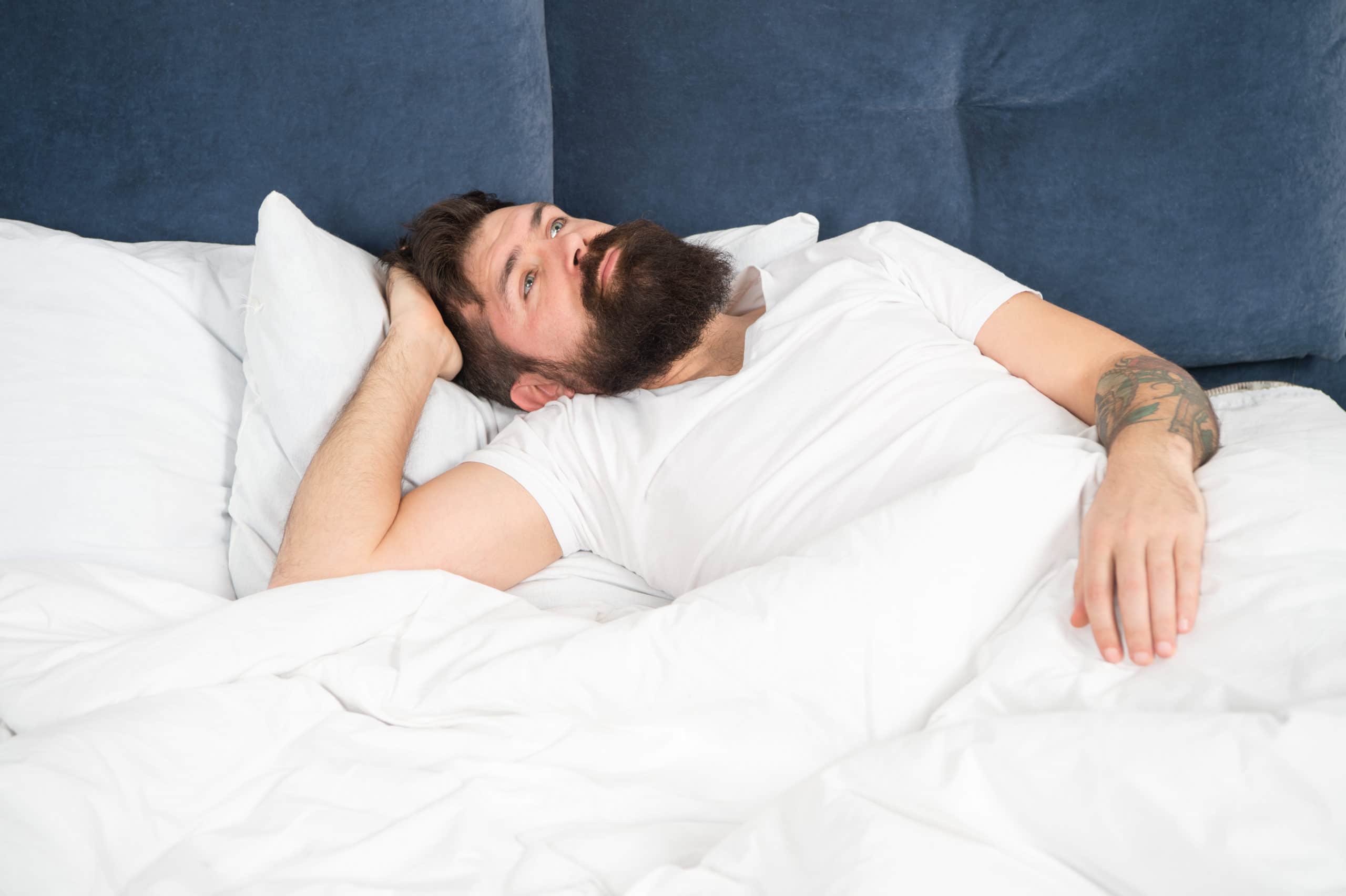The golden light of a dewy morning streams in through drawn curtains. Just outside, a sparrow celebrates the new day with a cheery song. Cozily snuggled in your blankets, you shift subtly in bed and know immediately—you slept on your neck wrong. Not only is this a rude wake-up call; it is going to affect your whole day. Truly, there’s no better way to spoil a perfect morning than neck pain caused by pillows.
According to a 2016 CDC report, more than 14% of Americans cited neck pain as a regular struggle. While chiropractic care can be enormously beneficial for relieving neck pain, it cannot prevent it completely if a patient has a pillow that undoes everything a visit to the chiropractor tries to accomplish. So how do you know if you have the right pillow for you? We’ve got a few things to consider.

The Purpose of a Pillow
Can pillows truly cause neck pain? The short answer is yes. The wrong pillow can cause misalignment that results in neck pain, headaches, shoulder pain and achiness, sleeplessness and even arm numbness. Because that is the case, many have even wondered if it is better for your neck to sleep without a pillow. Personally, we don’t recommend it.
The chief purpose of a pillow is to make your neck more comfortable while sleeping, but a proper pillow will serve another purpose. More than just surface-level comfort for the ideal eight hours a day, a good pillow will support your head and cervical spine so your overall spinal alignment is preserved. This has lasting consequences long after you hit the snooze button three times. Correct spinal alignment will optimize your body’s other systems, resulting in a healthier you.
The Perfect Pillow
If a good pillow is so important to staying aligned, how do you find one? Which one will prevent neck pain caused by pillows? Unfortunately, there is no definitive best pillow for neck pain because every person has unique sleeping habits and spinal arrangement. Don’t let a jazzy jingle in a pillow advertisement tell you otherwise: there is no one-size-fits-all pillow.
When choosing the right pillow, you’ll want to find something that keeps your neck (and the rest of your body) parallel to the mattress. Bending down toward the mattress or up away from it will cause strain in your neck, shoulders, and back, even if you don’t immediately feel it. If your pillow is too thick or if you have too many pillows, your neck will be propped at an angle that causes craning or twisting. There are two major characteristics to consider when choosing a pillow: material and shape.

Bad Padding—What’s Your Pillow Made Of?
Pillows nowadays are made with many different materials, everything from traditional goose down to latex lattices. Not all of these materials are created equal when it comes to preventing neck pain caused by pillows. Choose a material that will support your neck and back properly. As a general rule, feather pillows do not give adequate support. Latex is better at offering support, and it does not trap in heat like memory foam does. Of course, if you’re allergic to latex, it’s probably not your best option no matter how supportive it is. Memory foam will conform to the shape of your neck but does tend to keep heat close to your body. Choosing the right pillow for you will probably be a case of trial and error.
Shape Up—Pillows that Support Proper Alignment
The shape of a pillow includes its height and whether or not it is square or round. Very thick pillows keep the neck flexed throughout the night, while round pillows fit well in the curvature of the neck. The exact shape of which pillow is best for you will depend on which position in which you generally sleep.
Sleeping on Your Back
Sleeping on your back may just be the best pillow position for preventing neck pain caused by pillows. This is only true, however, if you have a pillow flat enough to preserve the natural curvature of your neck and firm enough to support it.
Sleeping on Your Side
The best pillow for preventing neck pain for side sleepers is one tall enough to fill the gap between the neck and the top of the shoulder. Pillow manufacturers are making strides to shape pillows that support the neck while not propping up the head. For side sleepers who want to avoid neck pain caused by pillows, keep an eye out for thick and supportive pillows that run four- to six-inches thick.

Sleeping on Your Stomach
According to the brains at Harvard Medical School, sleeping on the stomach is rough on the spine and neck because your body spends the whole night twisted so you can breathe. Sleeping on your back or side is much better for avoiding neck pain caused by pillows or otherwise. However, if your stomach-sleeping habit is set in stone, look for pillows that sit around three inches thick.
For more counsel about the right pillow for you, or to treat neck pain caused by pillows, come see us at Pinnacle Chiropractic. We know you have a lot of good choices for a Highlands Ranch chiropractor so give us a call and we can see if we are a good fit for your needs.



